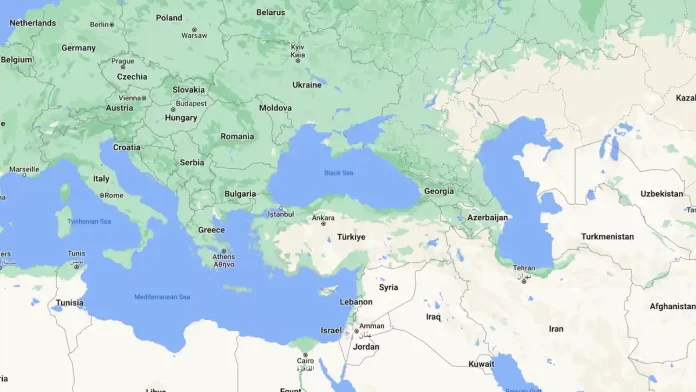The Black Sea, nestled between southeastern Europe and western Asia, is a significant geopolitical crossroads with a rich history and diverse cultural tapestry.
Bordered by six countries—Bulgaria, Romania, Ukraine, Russia, Georgia, and Turkey—the Black Sea has been a focal point of trade, conflict, and cultural exchange for centuries.
In this article, we will delve into the geopolitical dynamics of the countries surrounding the Black Sea, exploring their historical connections, economic ties, and the contemporary challenges they face.
Bulgaria: A Gateway to the Black Sea
Bulgaria, positioned on the western coast of the Black Sea, has a long history of maritime trade and cultural exchange.
The city of Varna, located on Bulgaria’s Black Sea coast, is not only a major economic hub but also boasts a rich history dating back to ancient times.
Bulgaria’s access to the Black Sea has been a key factor in shaping its economy, with the port city of Burgas playing a pivotal role in trade and commerce.
Romania: Navigating Economic Challenges and Opportunities
To the north of Bulgaria, Romania shares a significant portion of the Black Sea coastline. The historical city of Constanta has been a major seaport for centuries, connecting Romania to international trade routes.
However, economic challenges and environmental concerns, such as oil spills and overfishing, have posed threats to Romania’s Black Sea activities.
Despite these challenges, Romania continues to explore opportunities for economic growth and sustainable development along its Black Sea coast.
Ukraine: The Crimea Conundrum and Economic Struggles
Ukraine, with the second-largest coastline along the Black Sea, has faced geopolitical tensions, particularly regarding the annexation of Crimea by Russia in 2014.
The Black Sea serves as a vital maritime route for Ukrainian trade, and the annexation of Crimea has raised security concerns and complicated the geopolitical landscape.
Despite these challenges, Ukraine remains a key player in Black Sea affairs, with Odessa being a crucial economic and cultural center.
Russia: Strategic Interests and Naval Power
Russia, with its sprawling coastline along the Black Sea, has historically sought to establish dominance in the region. The annexation of Crimea reinforced Russia’s strategic interests in the Black Sea, providing the country with a critical naval base in Sevastopol.
The Black Sea Fleet is a key component of Russia’s naval power, allowing it to project influence in the region. However, this has also heightened tensions with neighboring countries and NATO members, contributing to a complex geopolitical landscape.
Georgia: Striving for Stability in a Complex Region
Situated on the southeastern edge of the Black Sea, Georgia has faced its share of challenges, including conflicts with Russia over Abkhazia and South Ossetia. Despite these challenges, Georgia recognizes the importance of the Black Sea for trade and regional stability.
The port city of Batumi serves as a gateway for Georgian exports and a focal point for economic development.
Georgia’s strategic location makes it a key player in efforts to enhance regional cooperation and stability.
Turkey: A Bridge between Continents and a Maritime Power
Turkey, with its unique position at the crossroads of Europe and Asia, holds a strategic position along the Black Sea.
The Bosporus and Dardanelles straits, under Turkish control, connect the Black Sea to the Mediterranean, making Turkey a crucial player in regional trade.
Istanbul, straddling both the European and Asian sides, is a major economic and cultural hub. Turkey’s strong naval presence in the Black Sea contributes to the region’s overall security and stability.
Conclusion
The Black Sea, surrounded by diverse countries with unique histories and geopolitical challenges, remains a critical region for international trade, security, and cultural exchange.
The countries bordering the Black Sea navigate a complex web of historical legacies, economic aspirations, and geopolitical tensions.
Understanding the dynamics of these nations is essential for comprehending the broader geopolitical landscape in the Eastern Mediterranean and Eurasian regions.
As these countries continue to shape the future of the Black Sea, the need for diplomatic cooperation and regional stability becomes increasingly evident.
